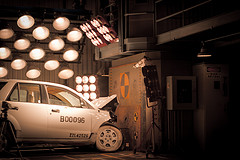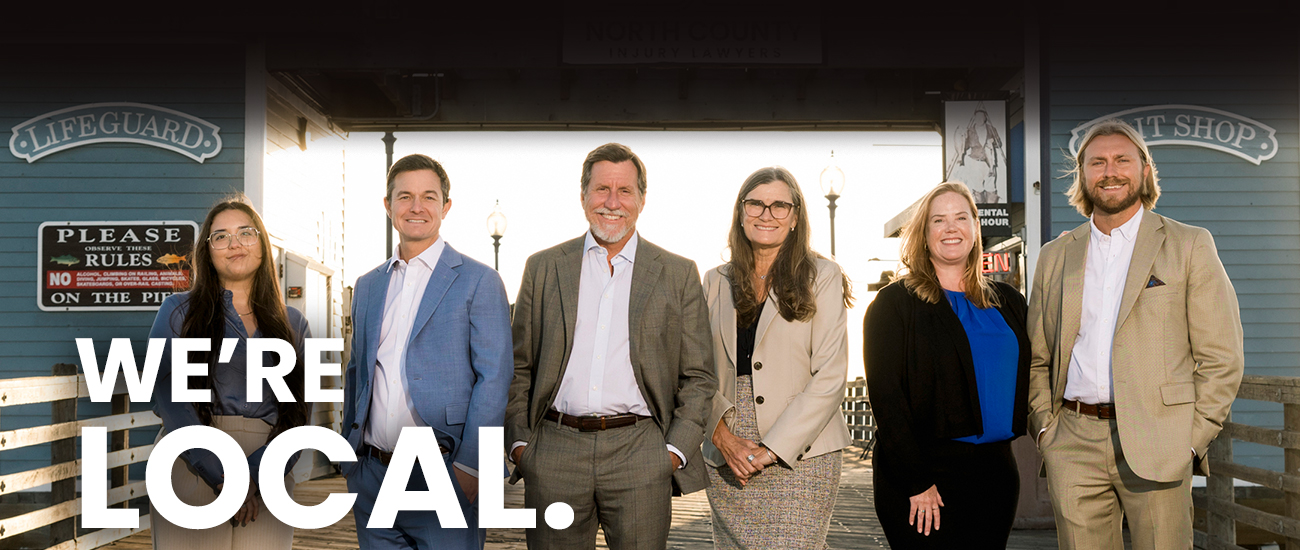- Free Consultation: 760-571-5500 Tap Here to Call Us
Can California Automobile Dealerships Be Liable for Product Defects?
Automobiles and Product Defects
Product liability cases frequently involve faulty automobile parts. Sometimes these flaws result in car accidents, while others cause injuries in different situations. These defective product injuries often vary widely, and defects can occur during the design process (before the part is even made), in the manufacturing stage, or at the marketing level. In fact, the recent Toyota fatal acceleration cases have been making news across the country. Recently, however, an article in Automotive News suggested that automobile dealerships might be liable for injuries sustained in defective passenger vehicles. Reporting on a recent California Court of Appeals case, the article explained that dealerships that “inspect and deliver new vehicles on behalf of manufacturers may be held liable for any defect, even if they didn’t actually sell the vehicles and weren’t negligent themselves.”

In some product liability claims, injury victims may be able to pursue a legal theory of strict liability. In many of these cases, plaintiffs obtain financial compensation for their injuries. If you have been injured by a defective product in the San Diego area, it’s extremely important to speak to an experienced product liability attorney.
Details of the California Case The California Court of Appeals case referenced here is one against Todey Motor Co., Inc. out of Oxnard, California. The plaintiff, Fernando Ibarra, suffered severe injuries, including paralysis, in a dangerous rollover accident involving a 2000 Chevrolet C3500 pickup purchased from the dealership.
According to the article in Automotive News, “California law has long held that a selling dealership is in the ‘chain of commerce’ for strict liability purposes.” Strict liability simply means that a defendant can be held liable for injuries even if it didn’t act negligently or with an intent to harm the plaintiff. In other words, simply being involved in the “chain of commerce” process involved in making and selling the vehicle, a selling dealership can be required to compensate injured plaintiffs.
But this case was a bit different, as Todey Motor Company wasn’t the seller of the vehicle—instead, it acted as a sort of weigh station between the manufacturer and the selling dealership. Todey did a “pre-delivery inspection” on the truck that didn’t involve examining the truck for any design or manufacturing defects, and it didn’t make a profit from the sale of the truck. Instead, Todey only earned $74.56 for the pre-delivery inspection.
Todey argued that it shouldn’t be liable for Ibarra’s injuries. Specifically, it asserted that it hadn’t actually been involved in the “chain of commerce” since it didn’t receive a profit from the ultimate sale of the vehicle. According to the Automotive News article, the store claimed that it “had received no direct financial benefit from the pickup’s sale, wasn’t integral to bringing the vehicle safely to market, and had no control or substantial influence over its manufacture or distribution.”
A lower court agreed with Todey, but the California appellate court said that Ibarra could go forward with a strict liability claim against the store. In the unpublished decision, the court explained that “Todey’s inspection and delivery of the truck placed it within the vertical chain of distribution for purposes of imposing strict liability for manufacturing or design defects.” Indeed, the court further emphasized that, “although Todey did not sell the pickup, it was the last link in getting the vehicle from its franchisor to the consumer,” and therefore had a “substantial ongoing relationship” to the manufacturer.
This decision suggests that plaintiffs in California may have more avenues of redress when they’ve been injured by a faulty automobile part. If you or a loved one recently suffered injuries in a car accident caused by a product defect, contact the injury lawyers at the Walton Law Firm today to learn more about filing a claim for financial compensation.
Photo Credit: SpreadTheMagic via Compfight cc
See Related Blog Posts: Update: Toyota Fatal Acceleration Cases Honda Recalls Nearly 100,000 Vehicles for Stability Control Problem









